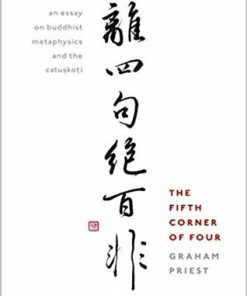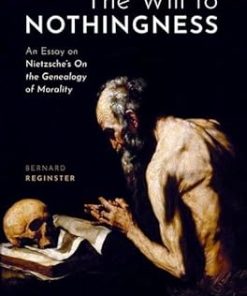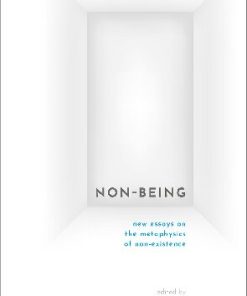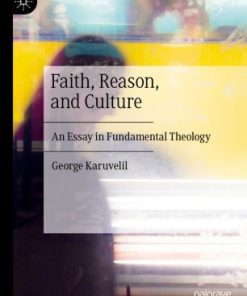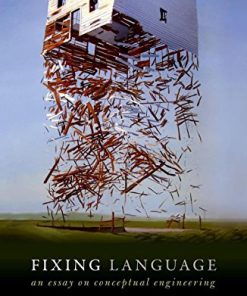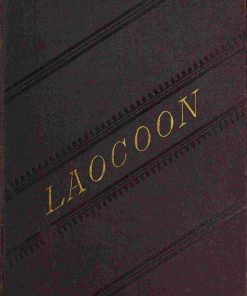Being and Reason: An Essay on Spinoza’s Metaphysics Martin Lin 9780192570901 0192570900
$50.00 Original price was: $50.00.$25.00Current price is: $25.00.
Being and Reason: An Essay on Spinoza’s Metaphysics Martin Lin – Ebook Instant Download/Delivery ISBN(s): 9780198834151,0198834152,9780192570901,0192570900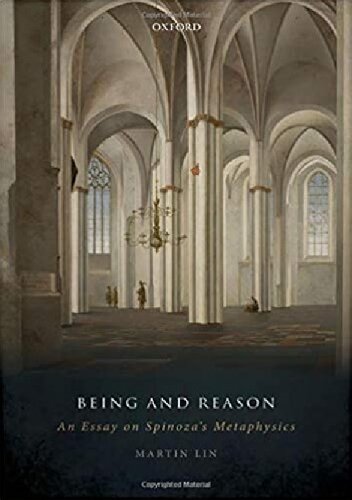
Product details:
- ISBN 10: 0192570900
- ISBN 13: 9780192570901
- Author: Martin Lin
In Being and Reason, Martin Lin offers a new interpretation of Spinoza’s core metaphysical doctrines with attention to how and why, in Spinoza, metaphysical notions are entangled with cognitive, logical, and epistemic ones. For example, according to Spinoza, a substance is that which can be conceived through itself and a mode is that which is conceived through another. Thus, metaphysical notions, substance and mode, are defined through a notion that is either cognitive or logical, being conceived through. What are we to make of the intimate connections that Spinoza sees between metaphysical, cognitive, logical, and epistemic notions? Or between being and reason? Lin argues against idealist readings according to which the metaphysical is reducible to or grounded in something epistemic, logical, or psychological. He maintains that Spinoza sees the order of being and the order of reason as two independent structures that mirror one another. In the course of making this argument, he develops new interpretations of Spinoza’s notions of attribute and mode, and of Spinoza’s claim that all things strive for self-preservation. Lin also argues against prominent idealist readings of Spinoza according to which the Principle of Sufficient Reason is absolutely unrestricted for Spinoza and is the key to his system. He contends, rather, that Spinoza’s metaphysical rationalism is a diverse phenomenon and that the Principle of Sufficient Reason is limited to claims about existence and nonexistence which are applied only once by Spinoza to the case of the necessary existence of God.
Table contents:
Part 1. Spinoza’s Starting Points
Why the Geometrical Method?
The Nature of the Definitions
The Nature of the Axioms
Approaching the Proto-Philosophy
Historical Context
The Content of the Metaphysical Definitions
The Content of the Theological Definitions
The Axioms
The Proto-Philosophy
Conclusion
Part 2. Substance
Historical Precedents: Aristotle
Historical Precedents: Descartes
The Argument for the Necessary Existence of Substance
Causation and Similarity
Similarity and Attributes
No Two Substances Can Share an Attribute
The Necessary Existence of Substance
The Existence of Substance: An Alternative Argument
Conclusion
Part 3. God
The Necessary Existence of God: The First Argument
The Necessary Existence of God: The Second Argument
The Necessary Existence of God: The Third Argument
The Necessary Existence of God: The Fourth Argument
Monism
Part 4. The Attributes
What is an Attribute?
Distinctions of Reason
Contrasts with Subjectivist and Objectivist Interpretations
The Parallelism
The Explanatory Barrier Between the Attributes
Objections and Replies
What is the Difference Between Thought and Extension?
Conclusion: Materialism, Idealism, and Monism
Part 5. Modes
Modes as Universals
Objections to the Interpretation of Modes as Universals
Modes as Particular Accidents
Modes vs. Real Accidents
What the Modes Really Are
Infinite Modes
Not Every Condition is a Modemaker
The Advantages of Spinoza’s Account
Clarification of the Notion of an Object
Textual Evidence
What is Inherence?
Why are Modes Conceived through Their Subjects?
Are the Modes Real?
Conclusion
Appendix: On Melamed’s Attack on the Property/Thing Distinction
Part 6. The Conatus Doctrine
The Meaning of the Conatus Doctrine
Spinoza’s Argument for the Conatus Doctrine
Conatus and Teleology
Conclusion
Appendix: On Carriero’s Anti-Teleological Interpretation
Part 7. Metaphysical Rationalism
Spinoza’s PSR
Necessitarianism
Causal and Conceptual Dependence
The Identity of Indiscernibles
Conclusion
Postscript: Spinoza’s Realism
Bibliography
People also search:
reasons for being dizzy and lightheaded
reasons for being tired and no energy
reasons for being gassy and bloated
reasons for nipples being hard and sore
the quality of being fair and reasonable
You may also like…
Politics & Philosophy - Asian Philosophy
Politics & Philosophy - Anthropology
The Will to Nothingness: An Essay on Nietzsche’s On the Genealogy of Morality Reginster
Politics & Philosophy - Anthropology
Spinoza on Reason, Passions and the Supreme Good 1st Edition
Politics & Philosophy - General & Miscellaneous Philosophy
Non-Being : New Essays on the Metaphysics of Nonexistence Sara Bernstein And Tyron Goldschmidt
Politics & Philosophy
Faith, Reason, and Culture: An Essay in Fundamental Theology 1st Edition
Politics
The Concept of Democracy: An Essay on Conceptual Amelioration and Abandonment Herman Cappelen
Politics & Philosophy - European & American Philosophy
Frege’s detour: an essay on meaning, reference, and truth First Edition
Politics & Philosophy - Anthropology
Arts - History & Criticism




